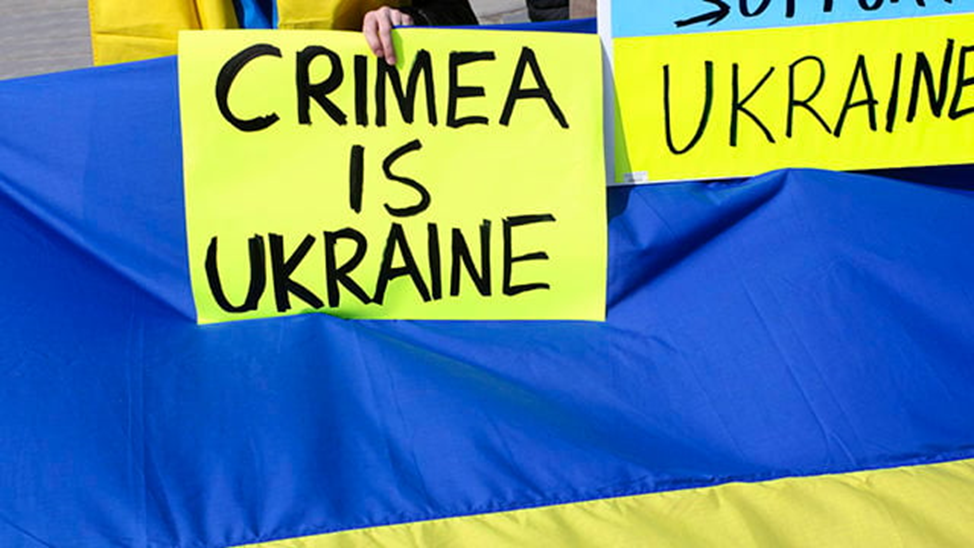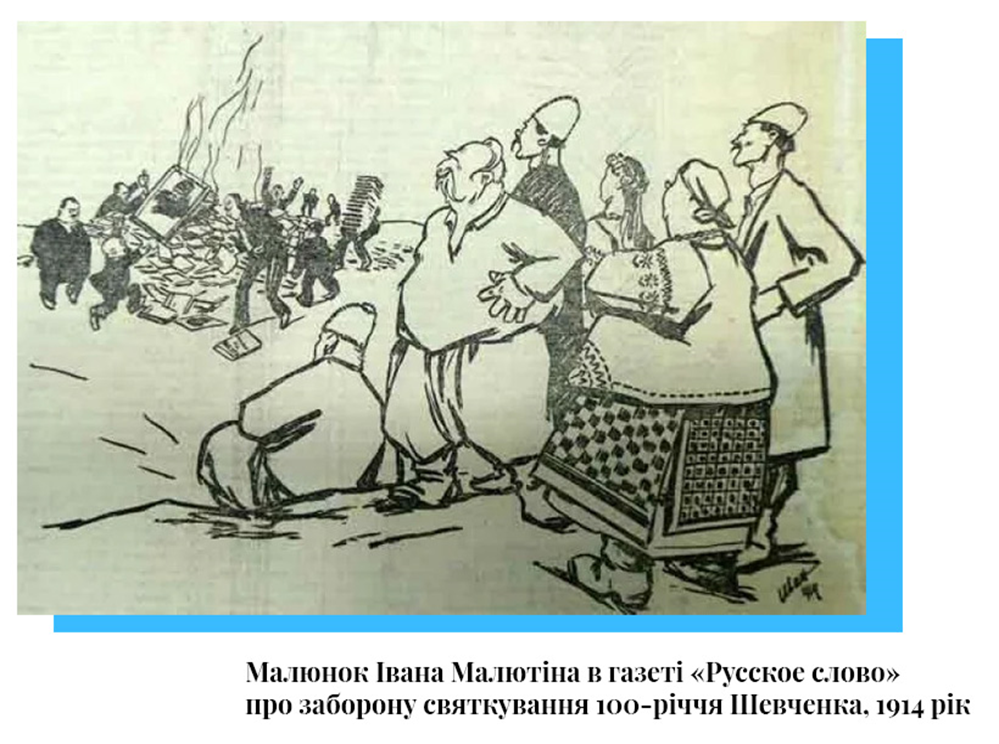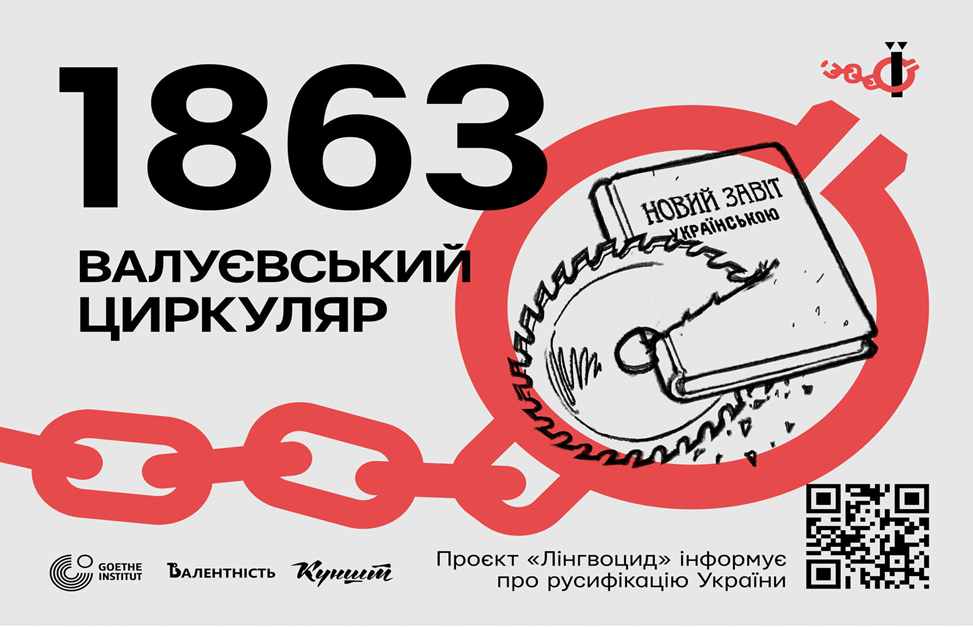STOP LINGUOCIDE: Issue 9
Purposeful destruction of the Ukrainian language (linguocide), as a defining feature of the Ukrainian nation, by Russia for many centuries is an indisputable historical fact.
Linguocide is a constituent part of the policy of genocide against Ukrainians in the temporarily occupied territories. Ukrainian language, as an important factor of national identity and state formation, is one of Russia's main goals in the war against Ukraine.
Acts of linguocide of the Ukrainian language are always accompanied by threats, intimidation, use of physical force, psychological pressure, restraint of liberty, abduction, torture, murder and other crimes against Ukrainians. Illegal acts and documents containing evidence of linguocide may be issued and distributed on behalf of the occupation administrations.
We hope all occupiers’ crimes, including those ones related to linguocide, will be duly recorded, investigated and brought to justice. The perpetrators must be identified and punished.
For that purpose, the State Language Protection Commissioner of Ukraine Taras Kremin appealed to the Ukrainians and representatives of international community to report about the acts of linguocide against the Ukrainian language (any actions of the occupiers or their collaborators aimed at discrimination or persecution of Ukrainians on the basis of language, forcible expulsion of the Ukrainian language from public space and public use, replacing it with Russian).
☎phone: +380635561279;
email: stoplinguacide@gmail.com
Detailed documentation of acts of linguocide of the Ukrainian language will be important for the arrangement of legal prosecution of criminals and bringing them to justice.
We bring to your attention the following statements of the State Language Protection Commissioner and other facts regarding the acts of genocide of the Ukrainian language.
27.10
Massive kremlin propaganda. How the myth of the "great russian language" was created. Even from the first years of independence, the most perceptive Ukraini-an intellectuals rightly interpreted the russian language as a ruthless imperial weapon, as a tool for the enslavement of other nations.
3.11
The occupiers completely liquidated Ukrainian-language schools in Crimea. According to the study made by the Regional Council of Ukrainians of Crimea (KRUK), Ukrainian-language education on the peninsula has almost been eliminated: none of 7 schools remained open, and the absolute majority of Ukrainian-language classes - there were about 400 of them - have also been disbanded. This is a direct violation of the decision of the UN International Court of Justice regarding the availability of Ukrainian-language education in Crimea.

5.11
"The Ukrainian language angers Russia. The Kremlin knows that language is an ideological tool… Russia is creating an institute of the Ukrainian language for propaganda" - professor, director of the Institute for Ukrainian Language of the National Academy of Sciences of Ukraine Pavlo Hrytsenko.
7.11
“For centuries, the russian occupiers have been acting in accordance with the principle: first linguistic and cultural expansion, then military aggression. russia's full-scale invasion of Ukraine on February 24 became a clear testimony to that” - Taras Kremin, the State Language Protection Commissioner commented for "Polish Radio".
9.11
A guide to the history of Ukrainian language oppression. The history of linguocide, i.e. the destruction of the Ukrainian language as the main sign of ethnicity, spans more than four centuries and consists of more than a hundred points, the coverage of which is devoted to volumes of scientific works.
 Ivan Malyutin's picture in the newspaper "Russkoye Slovo"
Ivan Malyutin's picture in the newspaper "Russkoye Slovo"
about the ban on celebrating the 100th anniversary of Taras Shevchenko, 1914
12.11
More than a hundred russian textbooks were seized from a school near Izyum. Law enforcement officers seized 500 Russian textbooks from Boguslav secondary school (Kharkiv region). The occupying "authorities" of that time planned to teach the children according to the program of the russian federation.
13.11
In the Kherson region, the Russians tried to eradicate Ukrainian identity, but the plan failed, – The New York Times. “In Kherson, national songs were banned. Speaking Ukrainian could lead to arrest. Schools adopted Russian curriculums, and young students were to be told that they were Russians, not Ukrainians”.
14.11
The employee of the hospital in Nova Kakhovka did not hide her sympathy for the occupiers. According to Mayor V. Kovalenko, collaborators forbid communicating in Ukrainian in the temporarily occupied Nova Kakhovka.
26.11
In Kyiv, the "Linguocide" route was created telling about the prohibition of the Ukrainian language. The project consists of memorials that show the oppression of the Ukrainian language in the respective locations via a series of graphic plates. They illustrate the bans on the Ukrainian language associated with these locations - bans on the Ukrainian schools, books, religious services, etc.

The "Linguocide" project informs about the russification of Ukraine